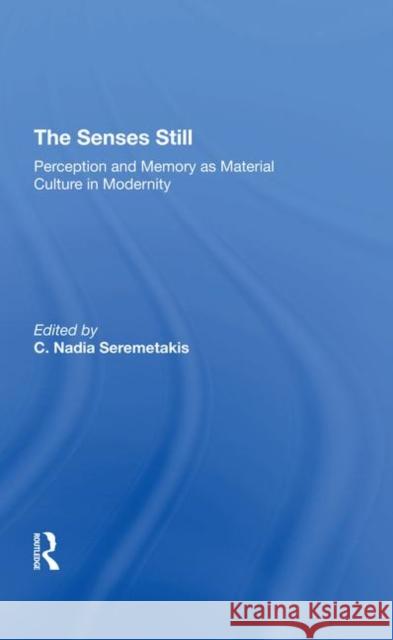The Senses Still: Perception and Memory as Material Culture in Modernity » książka
The Senses Still: Perception and Memory as Material Culture in Modernity
ISBN-13: 9780367295752 / Angielski / Twarda / 2019 / 162 str.
The Senses Still: Perception and Memory as Material Culture in Modernity
ISBN-13: 9780367295752 / Angielski / Twarda / 2019 / 162 str.
(netto: 674,98 VAT: 5%)
Najniższa cena z 30 dni: 654,86
ok. 22 dni roboczych.
Darmowa dostawa!
How can culture and experience be conceptualized when theorists drag social meaning back and forth between institutions, objects, or acts, as if the dense communication between persons and things were only a quick exchange between surfaces? This volume challenges mentalist approaches to material culture through the historical and ethnographic analyses of sensory memory. The sensory landscape and its meaning-endowed objects bear within them emotional and historical sedimentation that pose crucial questions: What cultural practices enable the sensory-affective experience of history? How does the history of perception speak to the perception of history? The editor, in her four essays, discusses sensory memory as a cultural form not limited to the psychic apparatus of a monadic, pre-cultural, and ahistorical subject but embedded and embodied in a dispersed surround of created things, surfaces, depths, and densities that are stratigraphic sites of sensory biography and history. The volume demonstrates that any ethnographic discussion of the senses involves a priori claims about modernity. Thus the senses are explored in contemporary political and racial violence, exchange practices, the emotions, national identity, food-ways, spatial organization, leisure activity, and the electronic media. Well-known authors examine personal and social investments in objects and substances as the tip of a submerged collective language of materiality that firmly grasps the mutable structure of contemporary experience. Social memory is treated as a meta-sensory organ and shown to be a culturally mediated performance that is activated by material acts and emotionally tangible artifacts.











